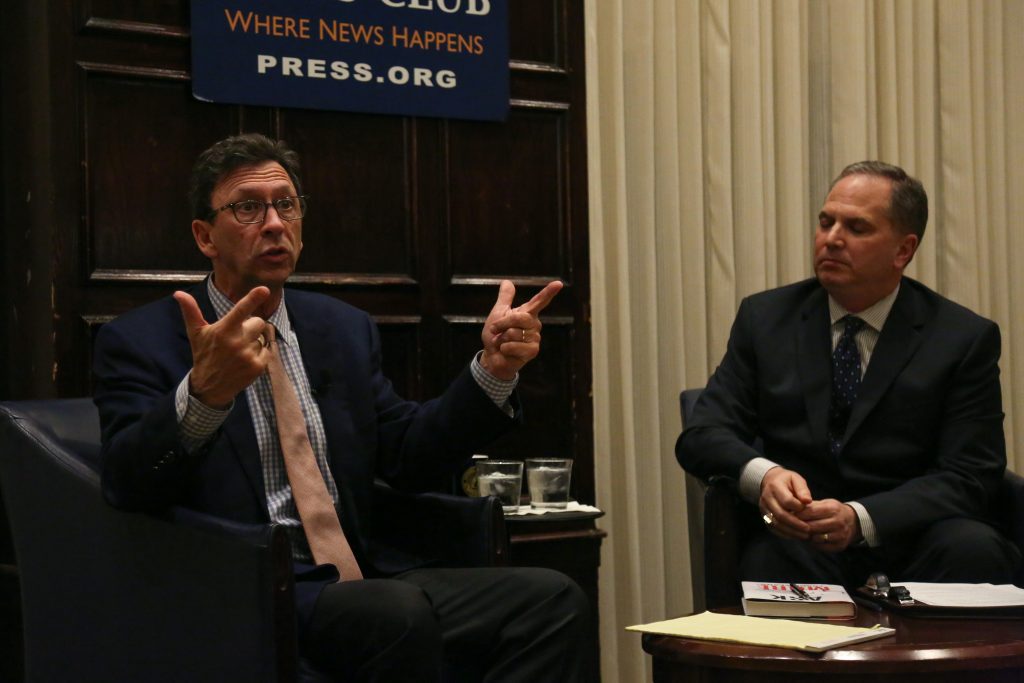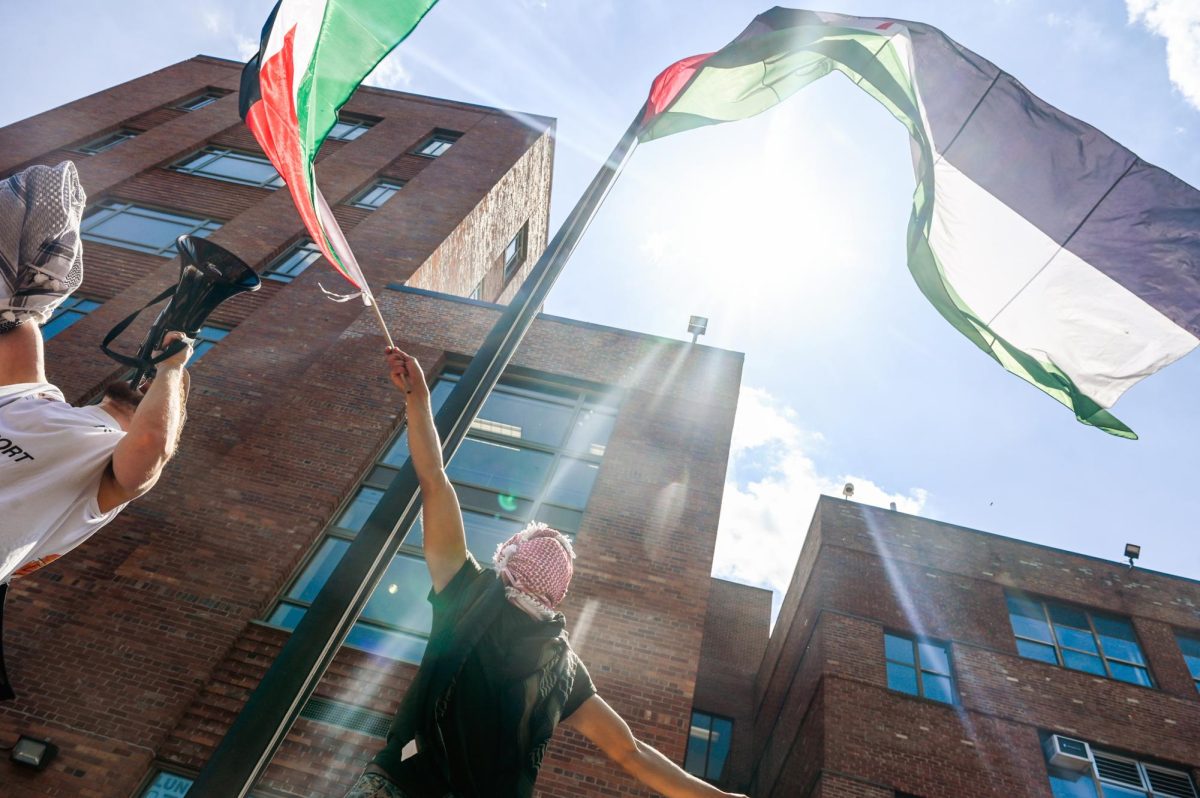Faculty in the School of Media and Public Affairs are figuring out how to adapt their classes to prepare student journalists for covering President Donald Trump.
Professors in the school say they are incorporating recent developments in class discussions and preparing future journalists to work in a country where the president has an openly acrimonious relationship with the media. Those faculty members said that with recent, rapid changes, they are learning how acclimate to the environment and how to pass along those lessons to students.
On his first full day in office, Trump said he was in a “running war with the media” and Sean Spicer, his press secretary, used what Trump’s former campaign manager later called “alternative facts” to claim reporters didn’t accurately cover the crowd size of his inauguration. The next day, SMPA Director Frank Sesno said on CNN that the journalism program would “flunk” students who used “alternative facts.”
The incident highlighted what Sesno said was an elevated role for SMPA, located just blocks away from a president who regularly criticizes the media. Sesno and other faculty said Trump’s campaign and the early stages of his administration have made the school’s mission to educate future journalists more pressing.
“There’s a whole new discussion out there as a result of this changed landscape,” Sesno said in an interview last week. “There’s a new urgency, there’s a fire that’s been lit under us to not just be talking about journalism, but to be deeply connected to what the meaning of journalism is and the role that it plays in American democracy.”
SMPA faculty have been reflecting on how to use courses and research to prepare media students for the current political climate and to better understand how Trump won in November, he said.
“I think we are in many ways in the eye of the hurricane around us, and we need to figure out what’s going on, help people determine how they are going to navigate the storm and I hope convene all sides to listen well,” Sesno said.
Sesno will sit down with Spicer Monday evening at an SMPA event about covering the Trump White House. After the interview, there will be a panel discussion with journalists covering Trump and former White House Press Secretary Ari Fleischer examining how newsrooms should respond to “open hostility and false information coming out of the briefing room, press office and even from the president himself,” according to the event’s website.
Trump has repeatedly branded the news media as “dishonest” and “corrupt” on Twitter. He has called CNN “fake news” and on Thursday, top strategist Steve Bannon told The New York Times the news media should “keep its mouth shut.” Trump has also trafficked in misinformation and conspiracy theories, including last week when he again claimed, without evidence, that millions of illegal immigrants had cast ballots in the election.
Carol Richards, a journalism lecturer, said that her class on campaign reporting last semester had to confront an unexpected question: Was it okay to call a major party presidential candidate a liar?
“That never used to be something a professional journalist would do,” she said. “He is changing the rules of political activity, but we have to maintain the integrity that gives us legitimacy and serves the public.”
Robert Entman, a professor of political communication, said the Trump administration is trying to intimidate journalists and that outlets should focus on investigating and reporting on his policies, rather than getting distracted by the things he says.
“I think Trump and his people are pretty clever about manipulating the media,” he said. “One way to resist the manipulation is to stop assuming that it’s absolutely crucial to take down everything that the president and his aides say.”
Professorial lecturer Michele Kimball said the new climate in politics and media has made SMPA courses’ subject matter more urgent.
“In this administration, I don’t have to explain why the First Amendment is so valuable as much as I may have in the past. It’s no longer philosophical, it’s very practical,” she said. “For me, personally, in the classroom it’s a very exciting time.”
SMPA faculty are always reevaluating how to teach courses based on current events, but the current fraught relationship between the news media and the president would require “much stronger vigilance” going forward, Kimball said.
“This is why we do what we do,” she said. “To make sure that our students are ready for the world that awaits them.”





